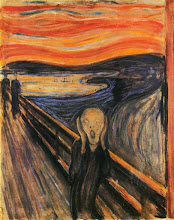For centuries, history has been remodeled due to different perspectives of successive generations and has led to the birth of mythology. As the name might say, the word 'mythos' itself means 'a lie' but for all we know, deep down there's a truth that can be exhumed. That's one of the reasons why mythology is studied, other being its wide use in literary relation, such as Milton's.
Study of remodeled history has always seem to sprout from a common idea. There's a God. He wants to be worshiped.
Take Hinduism, Islam, Christianity, or even mythology that dates back to BCs. There's always a concept of ultimate divinity holding the throne of skies, which expects to be feared and loved at the same time. Start of Adam to the end of world has been linked to the name of God. Since God has been so many times related to the world - always the same stories - it gets quite common if you read a similar story in two religions. God has always been the same, the stories have always been the same, but perspective is what changes with every turn of century.
For today's article, I have decided to present an example of Noah, the well-known prophet of Islam, Christianity and Judaism, and Deucalion, a figure of race Prometheus in Roman mythology. Since everyone knows about the story of Noah and his Ark, let me skip through that and move on to Deucalion and his story.
With stepping of Jupiter (Zeus) onto the throne of king of gods and men, the Golden Age commenced. Following it, came the Silver Age, then Brazen Age and finally Iron Age - each era difficult and harsher than the previous one. Iron Age, filled with tyranny, oppression, crimes and nonspiritual distance from gods led to the rage of Jupiter, who in his fury decided to fire up the Earth with his thunderbolt, but let go of the thought when he considered the risk of lighting up his own abode. So he decided to call on to his brother Neptune to aid him with his waters and flood the Earth so that no human lives a further day.
The north winds were held up in chains and south winds carried with them heavy rainfall. This, together with flooding of oceans and rivers, consumed whole of the Earth. Deucalion, a pious man, however got into his little boat with luck and saved himself and his wife, Pyrrha, from the havoc. They saw birds unable to find a dry piece of land to rest their wings, and they saw huge bears unable to swim as their heavy bodies drag them down the waves. They saw death, and no land.
Days later however, they found Parnassus mountain which overtopped the waves, where they made their stop and started a new life thence.
What amazes me is the wonderful similarities between the story of Noah and the story of Deucalion. There's a small difference too: Noah was informed well before the calamity hit the Earth, while Deucalion was uninformed and escaped the wrath out of sheer luck and by being ready at the right moment. Noah had a whole ark constructed, while Deucalion had a small boat to himself. Deucalion saved only himself and his wife, while Noah saved pairs of animals and his family (Bible)/pious people (Qur'an).
Another part of the story that intrigued me while I was reading this was that according to Roman Mythology, Prometheus is actually the race that gave rise to humans, and Deucalion was one of the Prometheus. In Biblical narrations, Adam is said to have given rise to humans and Noah is said to be the 'Second Adam' since when every person died in the flood, it was his generation which continued as human race. So even if mythology is derived from a word that means 'a lie', it sure isn't a complete lie. Though fiction is supersaturated in myths and legends, there is always a truth that you can relate to.
Anyway we can all agree to the point that a great flood did happen. What happened afterwards has been modified with years that followed, but what really happened is not one of my concerns. It 'did' happen, that's what matters. Does every myth relate to something that really happened? Or is this Deucalion just a huge coincidence?
Monday, 18 May 2015
Subscribe to:
Post Comments (Atom)

0 comments:
Post a Comment